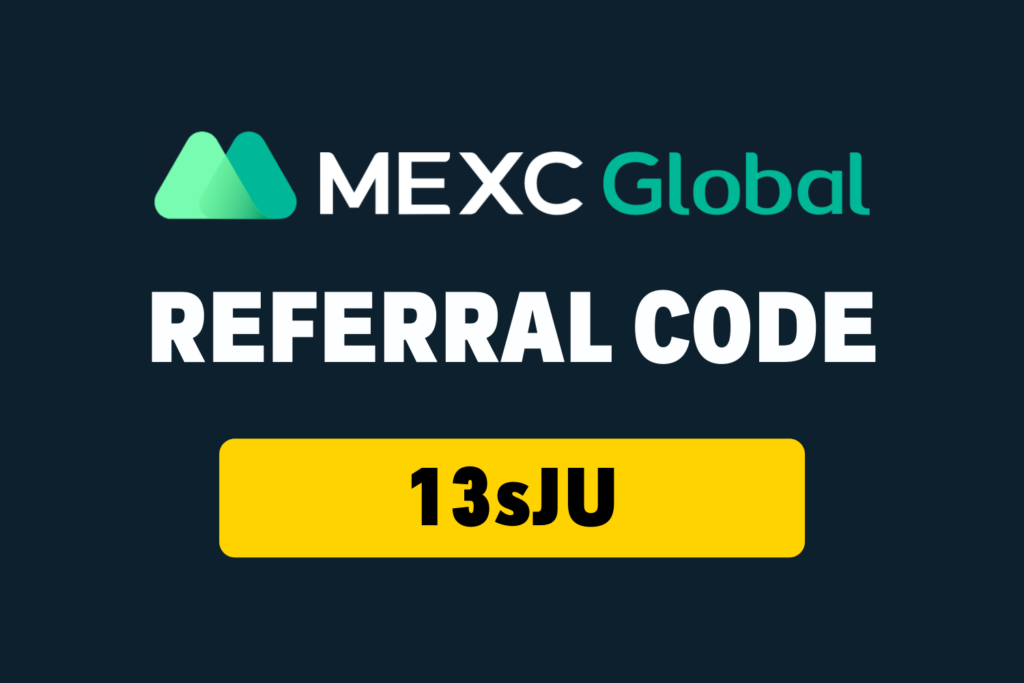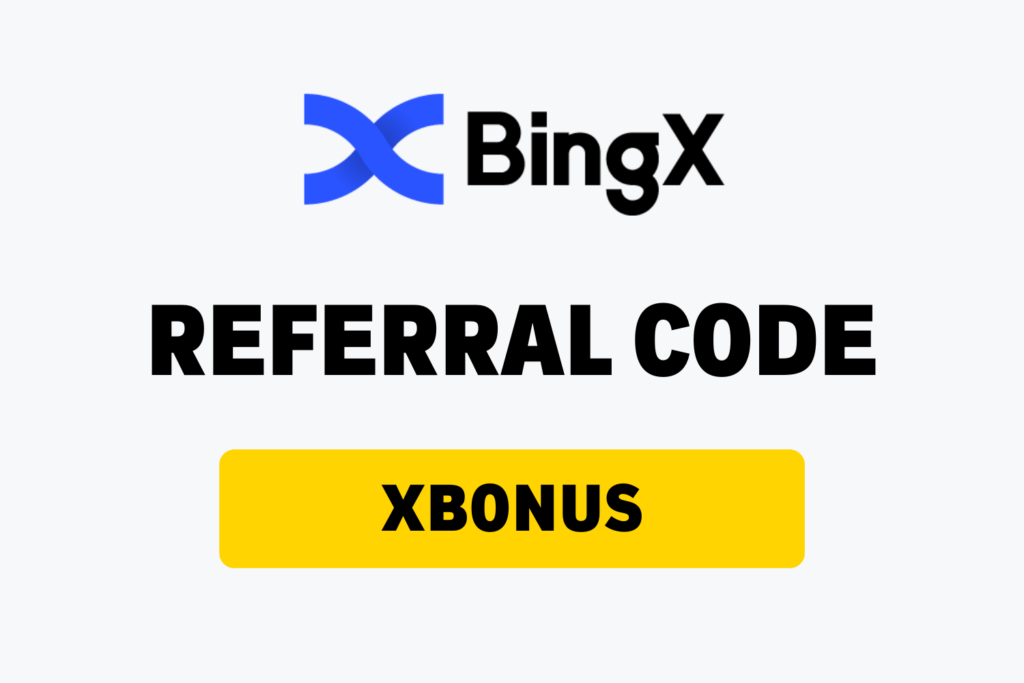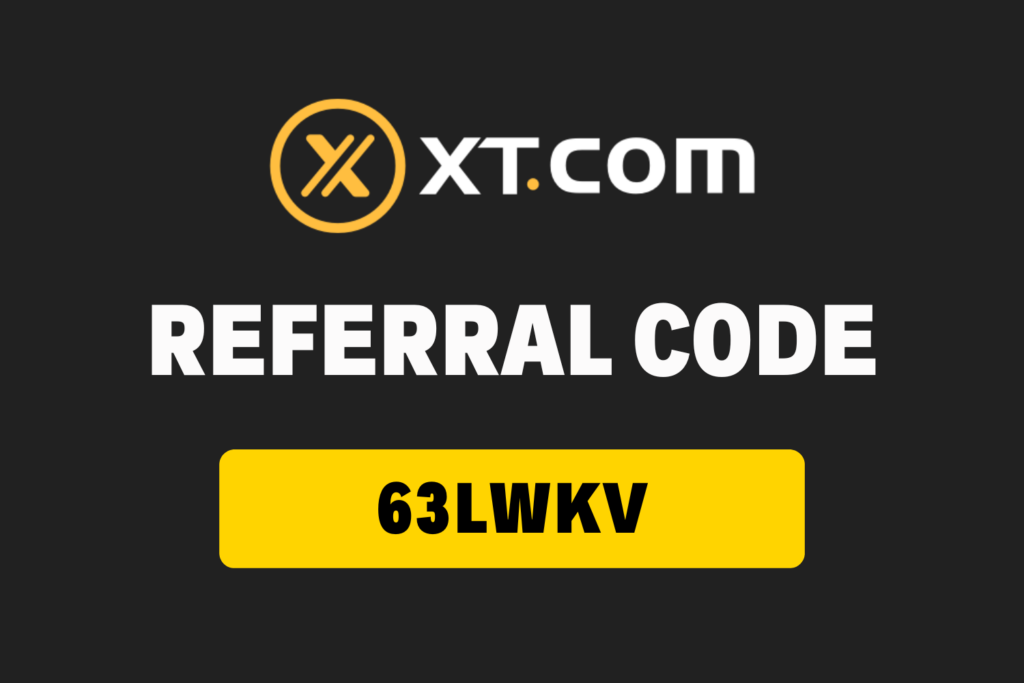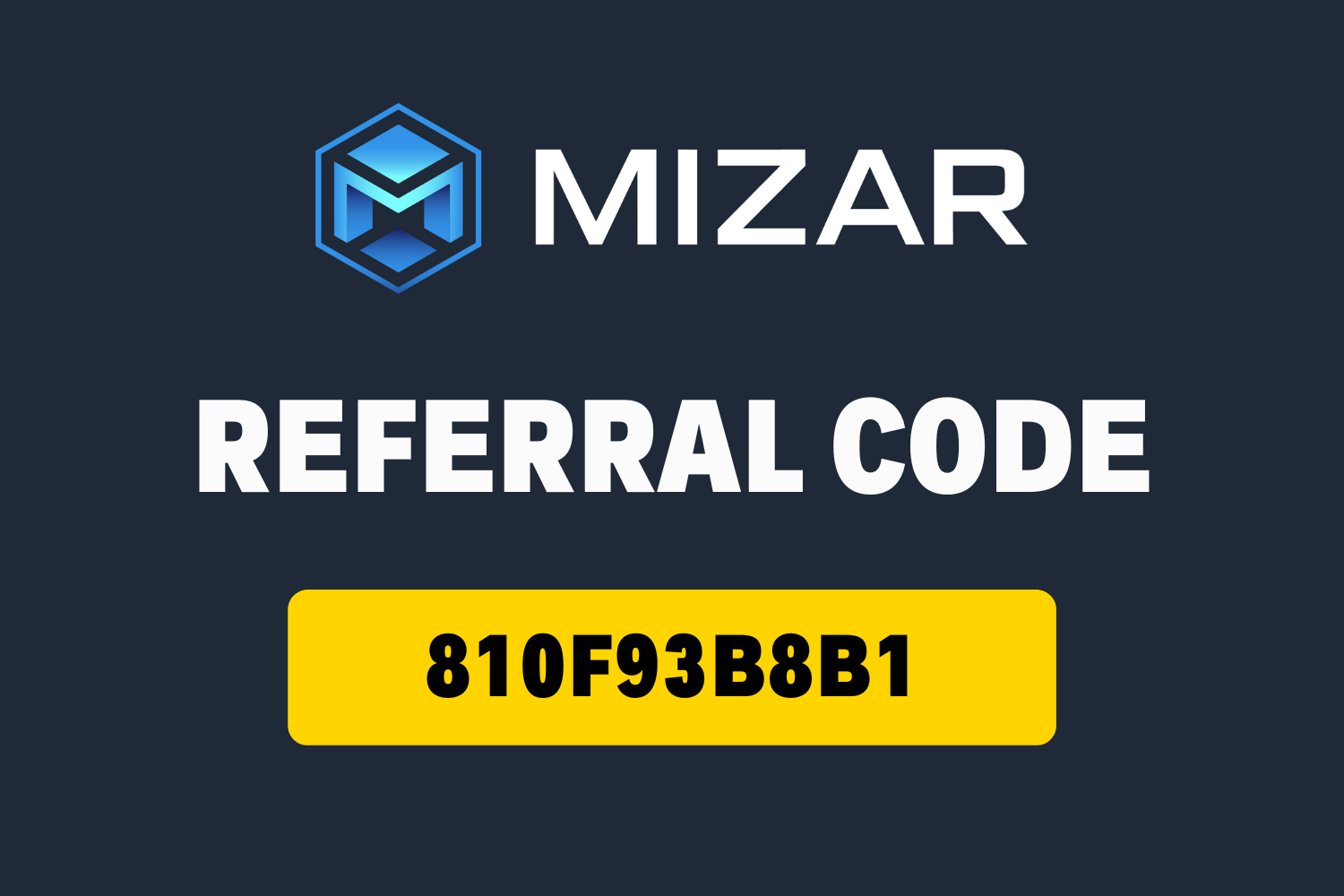We’ve put together a list of the best Bitcoin/Crypto referral codes, bonuses, and promos. You can claim the bonuses when you sign up for accounts on the sites/apps. All bonus codes have been verified and are working in May 2024.





















































































Bitcoin & Crypto Bonuses Guide
While there are many advantages of using crypto, including anonymity and decentralization, there is also another advantage that often goes unnoticed. That of being able to earn free crypto bonuses.
These bonuses apply to both new users and old crypto enthusiasts. In fact, some of these bonuses are so easy to earn that you may as well call it free money. However, there are certain conditions that need to be met before you receive these bonuses.
This article is a complete guide to crypto bonuses. As long as you own digital assets, it is possible for you to earn a lot of bonuses. Here, we tell you how!
Crypto Sign Up Offers
There are various different types of bonuses that you can get. Most of them revolve around creating a free account on one of the crypto platforms and then entering a referral link or a referral code.
Almost all crypto platforms deposit the bonus immediately into the user’s accounts. However, they usually have certain stipulations about how the bonus can be used.
New accounts are not the only ones that stand to receive bonuses. Existing accounts can also participate in promotions that offer bonuses. There is also the added aspect of the referral bonus, where users can create their own referral link and send it to friends and family. This encourages them to become new customers of the platform and receive a sign up bonus of their own.
Before we dive into the various different types of bonuses on offer, let’s take a look at how users usually receive a bonus.
What Are Crypto Bonuses?
A crypto bonus is a free bonus you can get when registering on a crypto platform (exchanges, casinos, apps, and more) and completing the bonus tasks. Most welcome offers require a deposit, but there are a few which offer no deposit bonuses.
How to Receive a Sign Up Bonus
While the actual sign up bonus and the sign up process will vary depending on the platform you are opening a new account on, most of the steps that you need to take are similar. Here, we have distilled the process down to its basics, so that you know exactly what to do to receive your welcome bonus when opening a new account.
- Make sure you have a referral code or use a special link. Almost all platforms require a referral code before they dish out a welcome bonus. You’ll find all the special links & codes on this site.
- Begin the account creation process by heading to the website/app and clicking ‘create account’ or ‘sign up’.
- Input all the required details for account opening. Make sure all the details are correct.
- When asked for the referral code, type or copy-paste the code that you have.
- Complete advanced verification. This step is required by all major crypto platforms due to regulatory reasons.
- Once you complete registration, crypto platforms require you to meet the bonus requirements.
- A user receives compensation in the form of a BTC payout (or another coin of equivalent value) once the requirements are met.
Remember that if you have a referral link, you can skip steps 1 and 2. Simply click on the referral link and it will take you to the page where you can create a new account. All the remaining steps are the same.
What Are Bonus Requirements
In order to make sure that new users do not only sign up to a platform for the free Bitcoin, companies usually have certain requirements that need to be met. Here are a few common requirements that new users may need to meet before they get their free Bitcoin.
- An initial deposit may be required. The BTC payout may scale directly with the first deposit, and there may be a minimum deposit limit to receive the bonus.
- Users may be required to make their first crypto-fiat transaction.
- Users may receive the bonus instantly but have a lock-up period. During the lock-up period, the bonus can be used freely within the platform, but cannot be withdrawn.
Types of Crypto & Bitcoin Bonuses
Now that you are aware of how bonuses work, we can now take a look at the various types of crypto bonuses.
As we move towards a digital token-based economy, crypto is being used in more ways than ever before. It is obviously being used for payments and investment purposes, but the underlying blockchains are being used for much more than that (e.g. NFTs).
As such, there are numerous crypto-based projects, and all of them offer different kinds of bonuses. These may range from a $10 sign up bonus to a discount on trading fees.
Let’s look at four different types of crypto and Bitcoin bonuses.
Casino Bonuses
When it comes to crypto promotions, bonuses, and rewards, nothing can beat the casinos. Everything from a Bitcoin welcome bonus to always active recharge bonuses are offered by casinos to players willing to take a bet.
Since the house always has an edge, casinos are guaranteed to make money in the long run. As such, they incentivize players to deposit as much and as frequently as possible. Due to this, it is important to be careful and responsible while gambling. Make sure you do not fall into the trap of earning as much free Bitcoin as possible, losing your crypto holdings in the process.
Crypto bonuses vary in how they are paid out, but it is possible to receive your bonus in Bitcoin on some sites. Most likely, however, you will receive the bonus in the casino’s own currency, with the option to convert to Bitcoin later on.
Exchange Bonuses
Free Bitcoin bonuses are quite common on crypto exchanges. However, the exchanges need to be a lot more nuanced about this, as they do not have the same house edge as the casinos do.
When crypto exchanges were a novel concept, the bonuses were huge. There were promo codes out there that offered as much as $100 in free Bitcoin. Since crypto exchanges have become the norm, you would be lucky to get a $10 Bitcoin bonus for signing up.
Nowadays, bonuses tend to be in the form of trading fee discounts. You can make use of a referral link when signing up and receive a significant discount on the fees paid when trading digital assets. For those that trade a lot, it is possible to save hundreds of dollars worth of crypto using this method.
Lastly, the best way to earn free Bitcoin on an exchange is by joining the referral program. You can generate your own referral link and send it to others to receive a BTC payout.
App Bonuses
It is very difficult to define what a crypto app exactly is, but you can receive a crypto bonus in numerous ways through your phone. The simplest method is to download the apps for the exchanges and the casinos, and then use the referral code to receive your crypto bonus when opening a free account.
The other would be to make use of apps that can help you earn free Bitcoin using the digital assets you already have. While technically not a bonus, there are numerous apps out there that can help you stake crypto to earn interest. Think of it as an interest account at the bank, but the interest rate is much higher.
Overall, the bonuses for using crypto apps vary widely. The easiest way to earn free crypto on your phone is by opening the account on exchanges, wallets, and casinos through the app, and using a referral code when registering.
Wallet and Credit Card Bonuses
Bitcoin wallets and credit cards also allow people to earn rewards. Since crypto has been gaining traction in the world of mainstream finance, credit card companies have been wanting to get into the action.
Crypto cards are usually almost always on the high end and offer rewards that are greater than most bank promotions out there. When you get a crypto rewards card, you will have multiple credit card issuers.
The first credit card issuer will be the payment processor. For example, many crypto exchanges offer a metal Visa card, while others go for MasterCard (and others). The second credit card issuer will be the exchange or the crypto platform that you use. Think of the exchange as a bank credit card issuer. The only difference is that bank bonuses do not even come close to those offered by crypto exchanges.
Most of the larger exchanges have now become a card issuer, and the day when crypto users will no longer need a bank account is very close indeed.
Most Popular Free Bitcoin Bonuses
Now, let’s take a look at a few specific ways you can get free Bitcoin bonuses. Some of these bonuses will be a direct BTC payout, while others will be in another cryptocurrency that can easily be converted into BTC (or a coin of your choice).
Remember that crypto is not the only way to receive a bonus. For example, Chase Business Complete Banking Solutions offer a $300 cash bonus for new accounts. However, bank promotions almost always carry a lot of stipulations and may require you to lock your money in the account for a long period.
What’s worse is that it is not the bank advertiser’s responsibility to inform you of these stipulations, so you may not find out about the asterisks that come with bank promotions until it’s too late.
So, while a Chase secure banking account is not a bad option, crypto bonuses are a lot better and a lot laxer. Here are some of our favorites.
BlockFi Interest Account
The Blockfi interest account can be used to stake cryptocurrency and earn interest. When you are creating your BlockFi account, it is possible to earn a Bitcoin welcome bonus of close to $300 cash.
Sure, you do need to deposit a large amount of money in your account to receive the largest crypto bonus. However, BlockFi interest rates almost touch 10% (on specific currencies). By contrast, banks offer rates that are downright laughable.
For example, Huntington Bank offers an interest rate of around 0.02% at the time of writing. PNC Bank offers rates that average around 0.05%. Considering that bank bonuses are practically non-existent, the hundreds of dollars worth of crypto you can make from BlockFi must look quite enticing right about now.
Coinbase (with Referral Code)
Coinbase is the biggest crypto platform for users that want to use their coins like fiat currency. It offers everything from a crypto exchange and a credit card to a really advanced DeFi platform.
It is possible to earn a $10 sign up bonus when creating a Coinbase account. All users need to do is to create a free account and deposit $100 or more. This can be transferred from another exchange or purchased with a linked debit card. Once the $10 sign up bonus is in your account, you can use it on the platform immediately.
However, remember that you have until 180 days from the opening of your account to make your deposit, or you will forfeit the $10 Bitcoin bonus.
Crypto.com Welcome Bonus
It is possible to earn up to $50 in free Bitcoin as a welcome bonus when you open a new account on Crypto.com.
In order to get this bonus, you need to stake CRO, which is Crypto.com’s proprietary token. The good news is that once you have earned the crypto bonus, you can create your own referral link and earn up to $50 per use referred. The bad news is that the exchange does not pay you the bonus in Bitcoin. Instead, you receive it in CRO (but it can be converted to Bitcoin).
Swan Bitcoin Savings Plan Sign Up Bonus
The last bonus we are looking at is the Swan savings plan bonus. This plan is ideal for those that believe in the future of crypto and want to have a plan that allows them to slowly build wealth through digital assets.
You can get a sign bonus of $10 when creating your account. You can also refer people to Swan and receive 25% of their total fees. However, it is important to remember that Swan is a platform that is generally lacking in features compared to the big boys. As such, make sure it can serve your needs before you create an account.
Referral Codes: How To Use Them
Joining the referral program of your preferred exchange, wallet, or casino is the best way to consistently earn a bonus.
Once a member has joined the program, they can create a referral link. The current member’s referral link can then be used by other new users when signing up, with both of them receiving a bonus.
Using a referral code is simple. Once you have set up your account, simply head over to the affiliate page and set up your code. Then, send this to your friends and family. Remember that exchanges prohibit you from setting up paid advertisements that encourage people to sign up using your code. However, you can still post your code on forums and social media.
FAQs
Can You Withdraw Bonuses To Your Bank Account?
This varies depending on the platform. However, the answer is yes, eventually. Platforms usually lock the bonuses for a specific period of time. After that, users are free to withdraw the bonus to their bank account.
The bonuses can, of course, be immediately used on the platform itself. Users can trade, exchange, or stake the bonus to potentially receive additional benefits.
How Do You Find The Best Bonuses?
The easiest way is through a quick Google search. There are a lot of posts on the internet advertising bonuses and the rewards that you can receive through those bonuses.
In rare cases, the website that you are registering on may provide you with a code itself. The code can usually be found somewhere on the home page.
Are There Any No Deposit Crypto Bonuses?
There are select no deposit cryptocurrency bonuses but they can be hard to find as most platforms require you to sign up and make a deposit before claiming the bonus.
Why Do Crypto Companies Offer Bonuses?
The world of crypto is getting larger by the day. As exchanges, casinos, and companies vie for market dominance, standing out from the crowd can be a difficult task. Companies offer bonuses to entice users to join their platform.
Once the users are a part of the platform, the affiliate programs, and additional promo codes are a way to make sure that users do not switch.
Is It Worth Claiming Crypto Promotions?
The fact that it is possible to make almost $300 cash worth of crypto on select exchanges should answer that question in itself. Regardless of whether you have just a few coins to your name or a high roller with serious money to invest, free money should always be appreciated.
Over time, crypto bonuses can add up to be a lot, especially for those that join the referral programs. As such, it is absolutely worth it to claim crypto promotions.